August 21st marked five years since Rini Ann Yongling became our daughter.
We had spent the previous three days in the shadowlands while our agency’s staff, both stateside and in China, worked feverishly on our behalf. The “begging letter”, as I named it, which I had been given an hour to compose the night after we met her in the ICU, had been translated and sent to the powers-that-be. So had the letters written on our behalf by cardiologists and surgeons who knew us, as well as all the photos we had brought with us illustrating the ‘before and after’ of our cardiac kids.
What a feeling it was to be so powerless, waiting for other human beings to decide the fate of the child we loved.
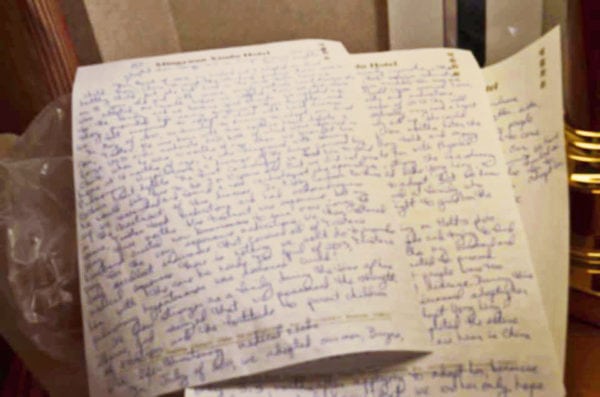
I did not learn until much later, after time had provided the buffer necessary to make sure that those involved were protected, everything that took place during those tumultuous days and nights. I will keep that information private, but suffice it to say that I learned a tremendous amount about diplomacy and how things are rarely ever what they seem.
I am forever grateful to all who took risks in order to save the life of one child. The utter helplessness of waiting on others to decide the fate of our child would come back to us within a few short weeks as we entered another land of shadows: organ transplant.
We received a call at dawn and were instructed to meet our guide in the lobby, and even at that point we did not know whether we were going to be permitted to adopt Rini. We were driven to her orphanage and taken into a conference room and then all of a sudden, there she was!
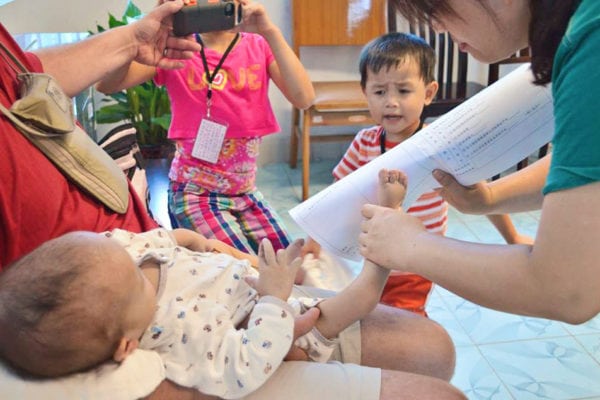
There was joy and anxiety all mixed into one very chaotic hour. The paperwork was filled out and signed, tears were shed, goodbyes were uttered, and we were ushered back into the car and driven to the provincial official’s office. It was at that point that we learned that there was still trouble, since the director of the provincial office had still not budged on his stance regarding the adoption.
It was his signature that was needed in order to finalize the adoption and obtain Rini’s passport, which was needed for us to legally transport her to Guangzhou and to go through the process of obtaining her U.S. Visa. We would find out the next day when we arrived in Guangzhou that the U.S. Consulate was well aware of what had been taking place; they had flagged Rini’s case, and were threatening to not issue her Visa due to the critical nature of her illness.
“For the past several days, both of his eyes have been firmly shut. This morning, one of his eyes is open,” were the words of our guide. It was now time, in her words, to “pound fists on desks” and do whatever we needed to in order to open his other eye to a precious child who needed a chance.
We spent I don’t know how long in the lobby of the director’s office on that sweltering morning, as his kind and gentle assistant went back and forth between us and him. Finally, she came out with tears in her eyes and thanked us for fighting for Rini as she handed us Rini’s paperwork… with the director’s red chop mark still wet. We never met him, but our agency’s China director visits with him from time to time, and shares photos and videos of Rini. She told us that he is “very happy with his decision.”
We rushed to the Notary, who also needed to be persuaded to sign off on the paperwork, but not because she disagreed with the adoption, but rather because she had just walked out of her office to go to lunch.
And then, for the first time in weeks, we breathed a little easier. I think we had about an hour of blissful ecstasy until we arrived back at our hotel and undressed Rini and discovered her condition. She was suffering from marasmus… 31 inches but under 13 pounds with hanging, wasted skin, the thickest part of her thigh measuring 5 inches in circumference. She had large, open, weeping wounds. Her skin was so compromised in areas that it would break open like tissue paper does when it is moistened, and she had burns from the pulse oximeters.
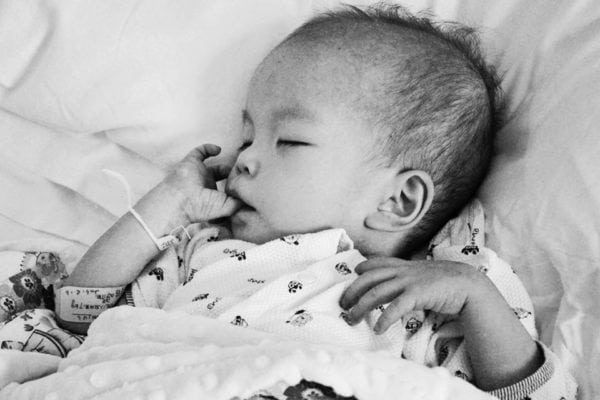
Our guide was so worried that we were angry but we weren’t. We were heartbroken. Heartbroken for Rini, for her birth parents, and for all who did their very best to care for her in a very broken system. And of course, we were heartbroken for all of the other children like her.
Eric and I often talk about how clueless we still were, despite our experience. I mean, Rini wasn’t our first rodeo with complex CHD. We had adopted three CHD children prior to her, two of whom were significantly “sick”. I use quotes because until Rini, we really had no idea how many layers there are to “sick” and to “dying”.
We still thought we’d get her home, get weight on her, and she’d be heading into the catheterization lab and then the OR for a BT shunt or a Glenn within a few weeks. I am glad for that ignorance now because otherwise our anxiety, which was already palpable, may have been nearly unbearable for the remainder of our time in China when there was nothing that could be done for her.
We had no idea – until the final labs that were done in the ICU in China were sent to our home cardiology team once we arrived in Guangzhou – that her metabolic panel placed her in the “severe” category of malnutrition according to the WHO. Our cardiologist, who is usually very level and calm, was highly concerned as was our pediatrician and the IAP that was part of the discussion.
We were told that Rini was most likely within 3-4 weeks of death by malnutrition, cardiac disease aside. They educated us on prealbumin and how Rini’s was so low that she was not a candidate for any invasive intervention, how Rini’s ventricular ejection fraction was just 3-4 points from being incompatible with life, and they counseled us to not attempt to nourish Rini with anything other than the most minimal of formula or bits of yogurt, which Rini took drop-by-drop under her tongue via syringe, because she was an intensely high risk for re-feeding syndrome (a situation which came to fruition upon arrival home and her admittance to the ICU).
Because we had been delayed in province by her blocked adoption, we had arrived in Guangzhou the night before her scheduled U.S. Consulate Visa medical examination. The Consulate had been following Rini’s case, and they had let our agency know that they were considering not issuing her Visa. It felt like the hits just kept coming, like a cold wave washing over us after we had just caught our breath.
The medical examination consists of three stations: ENT, height/temperature/weight, and “surgery” which consists of a rudimentary look over. Having been through the process on four previous occasions, including three with CHD children (two of whom were in relatively poor condition) I had an understanding of the process and its timing.
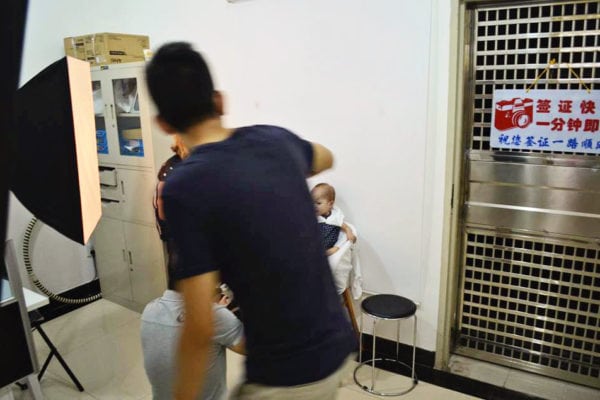
We were ushered into the “surgery” station first, and that is when another layer was peeled back which drove home further just how serious Rini’s situation was. Usually, the exam takes perhaps ten minutes at most. The physician looks the child over, takes a peek at their paperwork, signs off and sends you on your way. Even with Scarlett… all 11.5 pounds of her – at 26 months of age with an oxygen saturation wavering between 20-50 – was processed through quickly. Rini spent close to an hour in that one station.
The physician kept feeling for her peripheral pulses, which were very difficult to find. He listened to her heart… many times, he watched the pulsatility of the veins in her neck… many times. He sighed, over and over, and would just sit silently and stare at her. Then he would pick up the phone and call the U.S. Consulate, have a conversation, look through her paperwork, sit back and look at her, and sigh. This happened multiple times.
I could see Eric and our agency guide pacing outside the door. The other families in our group had almost all completed all three stations. My heart was pounding so hard I was sure the physician would be able to hear it. I was sweating, my mouth was dry, and I was utterly terrified.
Finally, the physician asked our guide to come in and translate. He explained that Rini’s heart was close to failing completely, that she was nearing the end of end stage heart failure.
Did I understand that?
Did I understand how sick she was?
Eric was still pacing outside, and at that point I had to convince the physician that we indeed understood, how we knew how to care for her and what our plan was for getting her home. I had to show him how we were hydrating her (she could not suck and had been taking small amounts of formula and water through a syringe, but refused to at that moment). She did, however, take some water from a bottle cap.
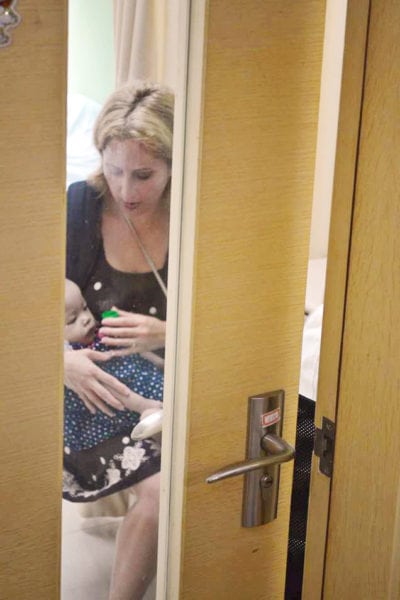
We were petrified. We did not feel prepared. We did not feel that we possessed the skills necessary to care for her.
I want that made perfectly clear, and here is why:
Eight weeks later, I was sitting next to Rini’s bed in the CICU of Seattle Children’s Hospital, listening to the hum of the ECMO circuit, when I received an email from a family telling me that they had reviewed Rini’s file when she was a photolisted child. They had really wanted her, they said, and were “ready to fight for her”, and also how happy they were that she had found a family. They then went on to say, “If we had decided to adopt her and had found her in the condition you did when we arrived in China, we would have had to leave her there since we don’t have experience with any of this.”
“…we would have had to leave her there.” Had to.
Guess what? We didn’t have any experience with any of this, either.
We had never experienced having an adoption blocked while in China.
We had never had a child declared inoperable, not only by China, but by some of the highest ranked and most experienced pediatric cardiology centers in the U.S.
We had never taken a child home with a handful of brochures and a referral to hospice, or woken up 9 days later at 5 am to our baby girl in respiratory failure.
We had never seen seasoned cardiologists’ eyes fill up with tears when we asked if we felt she would make it home from the hospital when we readmitted her.
Never had we spent anxious days and weeks praying and begging for a transplant center to deem her an acceptable risk for transplant evaluation, let alone for actually listing her for transplant.
We had never seen what refeeding syndrome looks like, or felt the unbelievable anxiety that overwhelms you when each additional support fails to bring about the hoped-for result.
We had never had a cardiology team sit with us and explain what death by heart failure looks like, or had to sign paperwork at rounds each and every morning outlining our resuscitation wishes for our child.
We had never been in the room on the morning our child was on the precipace of cardiac arrest, looking deep into her panic-stricken eyes as she held my hand while her team prepared to intubate.
We had never been present while our child went into cardiac arrest… not once or twice, but three times.
We had never experienced the terror of ECMO, and not as a temporary support, but rather as the final end stage bridge to a donor’s heart that would only come if another family lost their own child.
So no. I don’t buy it. Nobody “has to” leave a child there.
Children are left because adults choose to leave them. You may think that I blame families who make the choice to leave. I don’t. I don’t understand the choice, but I don’t blame. I am cognizant of the myriad issues that come into play when families are presented with unexpected scenarios. We are all made differently, and have different tolerances for “hard”.
But I also firmly believe that far too many people allow fear to control them. Too many people are filled with so much self-doubt that they flee rather than fight. And far too many people have a completely unrealistic expectation of the adoption of children with significant medical needs such as CHD.
What I do know is that all of the fight, the fear, the pain, and the after-effects of trauma have been dwarfed by the richness brought into our lives by those very things. We have been made stronger.
All because of one beautiful little girl.
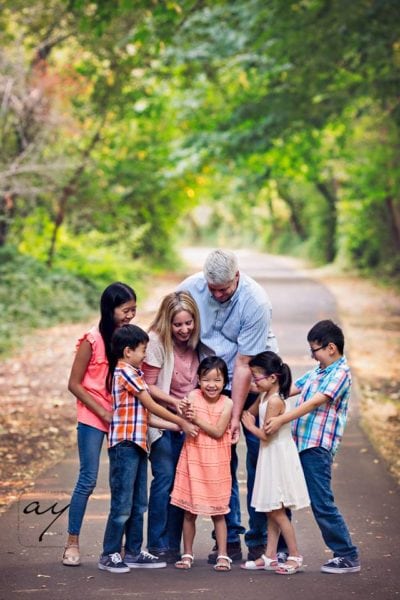
There’s so much more to reflect upon but, for today, I am thankful to God for the chance to be one of Rini’s moms, for the fortitude and dedication of all who worked without ceasing to provide her with the chance to live and to be as fiercely loved by us, her second family, as I know she must have been by her first.
Happy 5th Family Day to our shining light!
If you’d like to read more about Rini’s story, click here; to learn more about organ donation, click here.


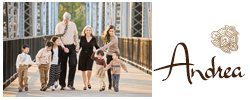























Leave a Reply